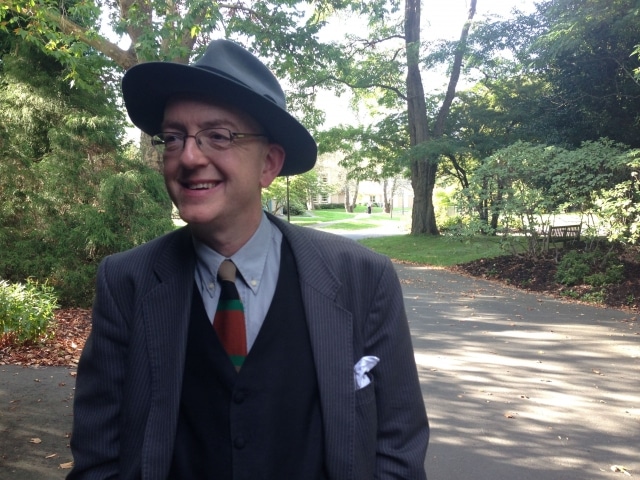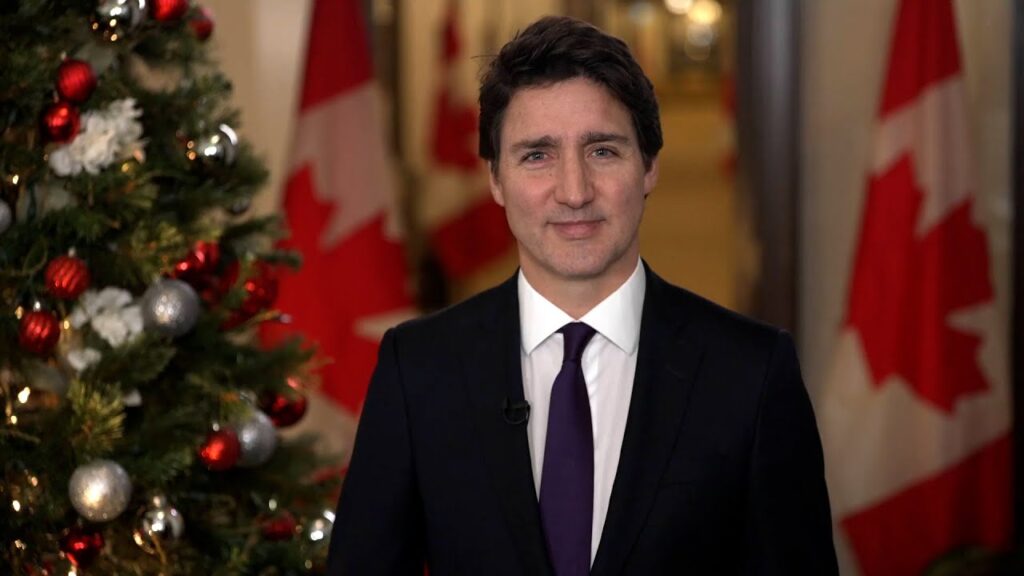Eight years ago, climate communications expert George Marshall picked up a copy of The Independent from his doorstep on a Saturday morning. Looking at the front cover of that magazine, he said, got him thinking about the “peculiarities” of climate change.
In bold letters the headline read “The Melting Mountains: How Climate Change is Destroying the World’s Most Spectacular Landscapes” and inside it outlined how alpine tourism is at risk with roughly 50 years left before a warmer climate begins to claim the snowpack.
Marshall said what really struck him was what he saw next. “It was the Saturday newspaper, so I picked it up and out falls the travel supplement. The travel supplement is dedicated to visiting those spectacular places before they go, entirely by the medium of international flights.”
“There’s something peculiar in this and I had a long conversation with my wife about it: how there’s this disconnect between the concern expressed on the first three pages and the hedonism expressed in the travel supplement.”
He laughed, “What did Oscar Wilde say? We all kill the thing we love.”
George Marshall: Compartmentalizing Climate
Marshall works as director of projects at the Climate Outreach Information Centre in Oxford and manages climatedenial.org, a website dedicated to understanding psychological responses to climate change.
His first book, Carbon Detox: Your Step by Step Guide to Getting Real About Climate Change, was met with a lot of positive fanfare when it was published in 2007. But facing these new complexities of climate change led Marshall to write his second book: Don’t Even Think About It: Why Our Brains Are Wired to Ignore Climate Change, just released three weeks ago.
Marshall says around this same time he had the poignant experience with his Saturday edition of The Independent, The Guardian newspaper wrote an article on the 25 places to visit “while you still can.” These stories, he said, are framed in the narrative of climate change and of a vanishing world.
The way we cope with this information, Marshall suggested, is by placing conflicting narratives and antagonistic facts into different bins in our mind.
“The other thing that is interesting to me is this idea of compartmentalizing as metaphor for the way the human brain operates. That the brain is divided into these supplemental parts and each part sort of sits in one hall and doesn’t talk to the other.”
Marshall said he got thinking about the editors of The Independent who knew that their readers would be interested in climate change, but maybe also in a holiday at a ski resort.
These things aren’t incompatible in a publication, Marshall said. And neither are they incompatible in an individual.
Marshall says he’s fascinated now by these information juxtapositions he sees everywhere, like a magazine stand on a street corner that displays multiple magazine covers.
”You can see the way high-carbon consumption patterns are arranged around environmental apocalypse. Again like the newspaper, like they’re separate supplements, yet there’s a conversation going on between them,” he said.
“When we look at these things we manage to build barriers and frames around them. We divide these, again, into different compartments and zero in on them on the basis of our interests.”
Marshall said he began to focus in on the question of why he might zero in on a climate change cover, while others will be compelled in another direction. How do we make those decisions, about what we will attend to, and what we will not?
“The thing which interests me very strongly with climate change is this balance of attention and dis-attention. In the book we call it ‘why our brains are wired to ignore climate change’ but it’s the word ignore that’s really short hand for dis-attention,” he said.
“What is that mechanism by which we can pay attention to some things and dis-attend others whilst being entirely conscious of the fact that we’re doing it?”
Climate Change and Multivalence
There is no authoritative story that climate change will tell, Marshall said. And that’s because climate change, more so than many other issues, is multivalent.
“It is not just something which is in the future or uncertain,” Marshall explained. “It is in the future, in the present and the past.”
Marshall said a lot of other climate psychology or theories of climate denial emphasize the future-oriented elements of climate change, or how addressing it is going to be expensive, or uncertain, or will require sacrifice.
But Marshall says there are other competing issues that could be all of these things and be conceivably less difficult to deal with than climate change. Think about a giant meteor hurtling towards earth, he said. If we know it’s going to strike in 50 years, that’s significant. That tells a narrative.
But because climate change is so multivalent, because it tells so many narratives, “it is as near to certain or uncertain as we choose it to be.”
We “pick the narrative” of climate change, Marshall said, and because of that, we can use this particular issue to tell ourselves any number of stories.
“Climate change exists for us primarily in the form of ‘social facts’ – constructed narratives based on our values and worldview.”
“So,” as an issue, Marshall said, climate change “is exceptionally open to biased interpretation.”
“It presents an incomplete narrative that calls for biased completion.”
Climate Change is the Perfect Crime
When we’re looking to diagnose a problem, we often search for a culprit, according to Marshall. But in this sense, climate change is a crime that not only has no clear culprit, but no clear intent.
“We’re all – and I say this as we’re in a room of affluent Westerners – responsible for climate change,” Marshall said, adding, “I’m not intending to cause harm. None of us are.”
Even so, climate change has been constructed in an enemy narrative, but without a clear suspect and without a clear intent.
“We are constantly trying to insert enemies into the frame of climate change,” Marshall said, and getting nowhere in the meantime. A pervasive cultural guilt is displaced onto individuals, many of whom feel powerless in the face of large systemic problems.
What has taken the place of productive conversations about responsible management is what Marshall calls a “negotiated silence.”
The absence of meaningful debate about climate action at the United Nations is a prime example of such a silence, Marshall said. And the inability to tackle climate emissions at their source is the troubling result.
“There is nothing comparable when it comes to any other international resource issue,” Marshall said, pointing to the strict regulation of drugs as an example.
“Every stage is considered,” Marshall said, when it comes to drug control.
Fisheries management is much the same, he said.
“Just think about fisheries: you have fish harvesting controls, not fish stick consumption control,” he said.
“A negotiated silence means no one is having that conversation,” leaving a discussion about climate change to fall off the rails.
“If you get a misaligned narrative, that puts the enemy emphasis in the wrong place” he said, “it’s very difficult to detach it.”
We become locked into certain narratives, Marshall said, to the exclusion of alternatives.
Breaking the Partisan Divide
A crucial part of breaking out of failed narratives about climate change, Marshall said, is “breaking through the partisan divide.”
He said there may be ways forward that are “uncomfortable” but they deserve our consideration. This is especially so when it comes to working with people of different worldviews.
When it comes to the particular way forward, Marshall is candid about his own limits: “I don’t know if I have the right answers, but I think I’m asking the right questions.”
But one thing Marshall is fairly certain of is that we won’t make progress by having information wars with our ideological counterparts. When it comes to divided perspectives on climate change, simply presenting scientific facts won’t cut it, he said.
“When you go outside your immediate domain,” he said, “there’s a lot we can learn from other people.”
George Marshall is speaking at the University of British Columbia in Woodward IRC 5 on Wednesday, September 10, 2014 from 12:30pm to 2:00pm. A live webcast can be followed at http://sustain.ubc.ca/wired. For more information visit the Pacific Institute for Climate Solutions.
Image Credit: George Marshall at the University of Victoria. Photo by Carol Linnitt.
Subscribe to our newsletter
Stay up to date with DeSmog news and alerts







